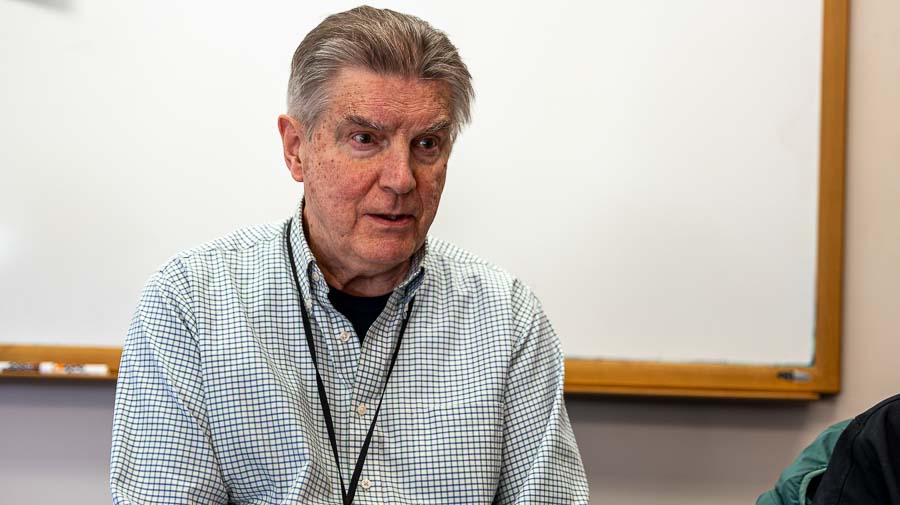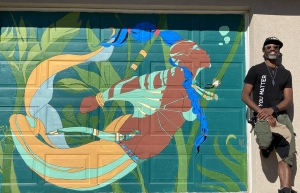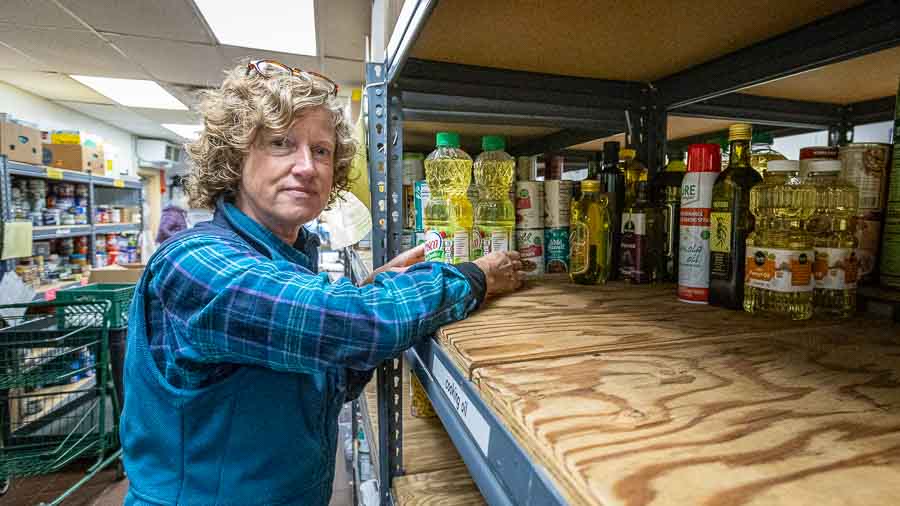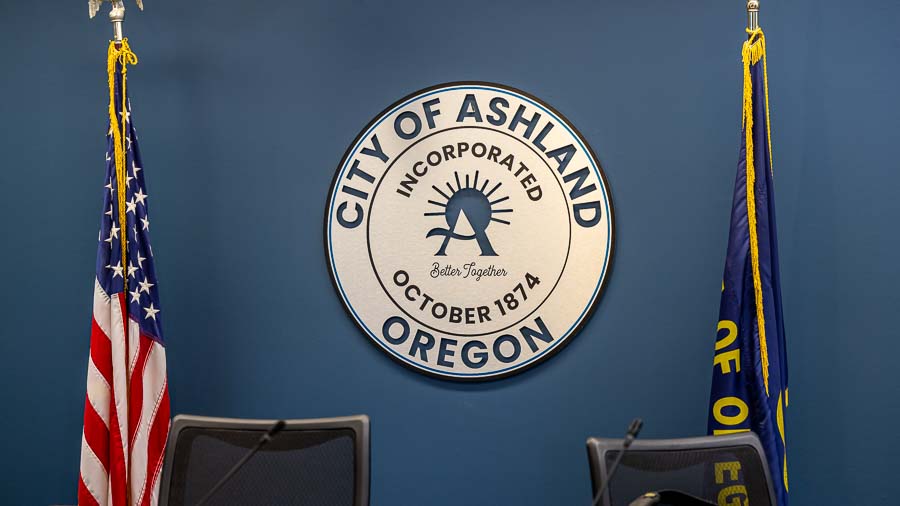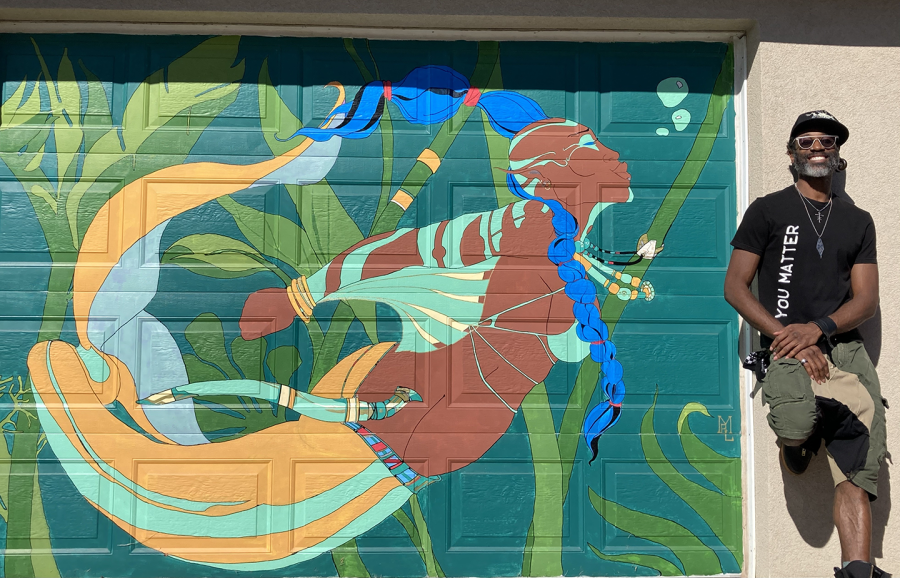Number of volunteers to help with events, other special needs, down to about 10 from 30
By Morgan Rothborne, Ashland.news
Ashland loves public events, said Ashland Police Lieutenant Bon Stewart.
“If there’s something new happening it’s like, ‘Maybe we should throw a parade for it.’ One of the things we really miss our volunteers for is those parades,” he said.
The city of Ashland’s police volunteer program had around 30 volunteers before the pandemic, but now has only around 10, Stewart said. Sitting around a table in the Ashland Police Station, four long-term volunteers were gathered with Stewart to share their experiences.
The lieutenant remembered back when he was a patrol officer working events, volunteers were available to stand at intersections and watch over things. Now sworn officers are filling that role, leaving them unavailable to leave their post.
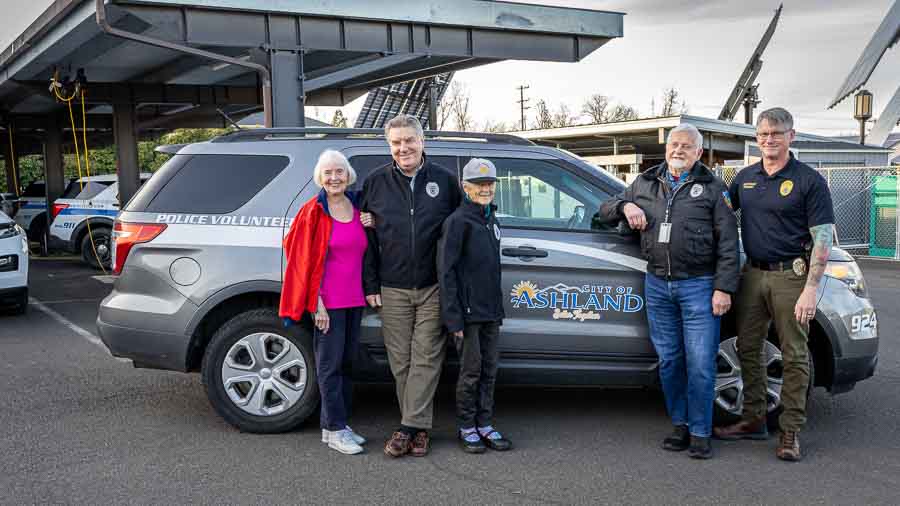
Mike Bielec began volunteering with the department because of the way it handled the Women’s March in 2017. He remembered being intermingled in a crowd of thousands.
“Throughout all of that, how many people there were, how strong the sentiments were being expressed, and all of that — I was truly impressed with how peaceful it was, how orderly it was. In the background, almost everywhere you look, there was a presence of the Ashland Police Department,” he said.
Some were volunteers and some sworn officers, but they were all “looking over us, and protecting us,” he said, creating the opportunity to peacefully protest.
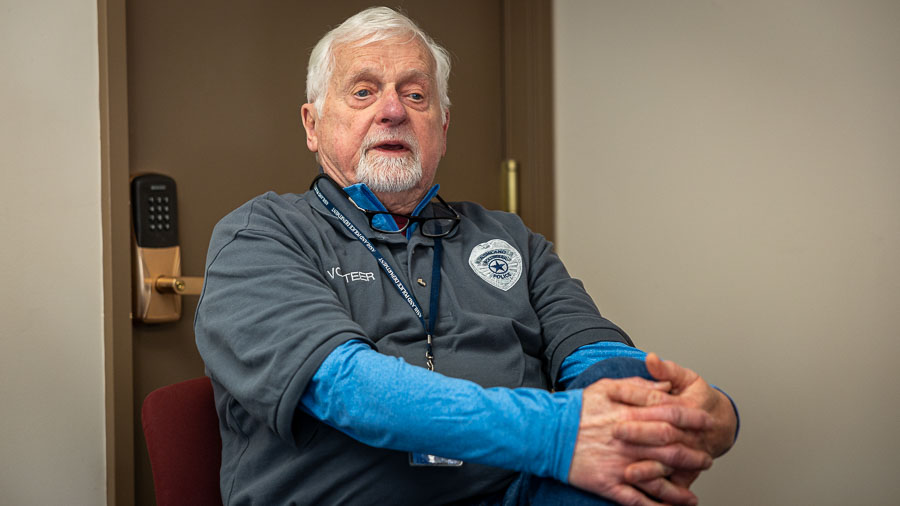
“We’re an important part of crowd control, blocking off streets and preventing crowds from running over people, we need more people, and we desperately need a new volunteer coordinator,” said volunteer Allan Anderson.
“COVID really basically wiped us out. … Not enough of us came back. We do important things for the city. We relieve paid officials from doing smaller jobs that would distract them from doing their real jobs. Only things they won’t let us do is pack firearms, and they won’t let us ride the motorcycles,” Anderson said.
Volunteers often function as the department’s “eyes and ears” around town, Stewart said. Fully staffed on a normal shift, APD has a supervisor — such as a sergeant — and three officers. Minimal staffing is one supervisor and two officers for a town of 21,000 people and occasional mutual aid calls to Talent.
When there are enough volunteers, some might help with foot or vehicular patrols through Lithia Park and downtown. There used to be a foot patrol on the bike path and a couple willing to check on people’s houses after they went out of town, Stewart said.
If a volunteer sees something that isn’t right, for small infractions they can ask for compliance. Or the situation may require a sworn officer and they can step back and get on their radios.
“A lot of people would drive past or walk past and say ‘That’s not my business,’ where the volunteers have made it their business to help make this a safer community to free up officers to deal with the criminality that is there. I love when people say, ‘Oh Ashland is such a safe place,’ you can thank your local police department,” Stewart said.
Living in Ashland before he thought of becoming an officer, he remembered developing assumptions of peace and security. Then the “rose-tinted glasses” came off when he entered the force and saw how many law enforcement actions were quietly occurring to maintain an environment of apparent tranquility.
“People are people; we deal with the same thing that every other community deals with,” he said.
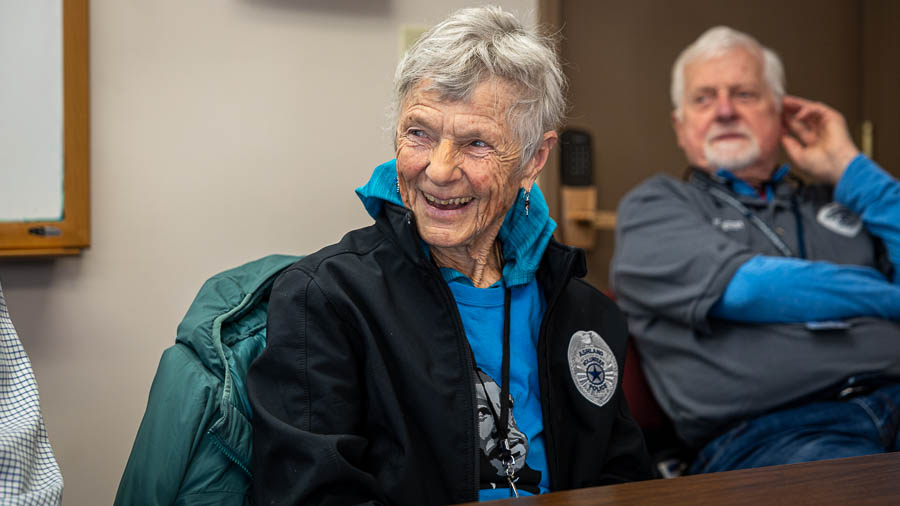
Barb Settles wore her jacket open, revealing a bright blue shirt with a portrait of the Rev. Martin Luther King Jr. Her little dragonfly earrings sparkled as she said she got interested with the police department after hearing Chief Tighe O’Meara as part of an OLLI class featuring all the city departments years ago.
“When it came to chief, I was so impressed with him talking about his growing up in Detroit. … I felt very comfortable, I thought it would be nice to do something with the police department,” Settles said.
She learned a couple years ago the department needed help with the foot patrol through Lithia which she was regularly walking anyway. Settles remembered a “really wonderful thing that happened,” while patrolling Lithia Park on a bright sunny day and finding someone smoking near the Butler Perozzi Fountain. Knowing she had her police volunteer uniform on, she approached the man and reminded him he was in a non-smoking area.
“He roared into me with all of these expletives, telling me how he was here first, he was part of the Native American community and who was I to tell him what he can do on his lands? I didn’t say much, I said ‘There’s an ordinance in our parks that doesn’t allow smoking,’ and he roared into me again,” she said.
She decided to walk on toward the Japanese Gardens. Shortly thereafter the man caught up with her and asked her to please stop and apologized.
“He said ‘I shouldn’t have said those things to you, I won’t do that again and I won’t smoke in the park again.’ … I’ll never forget that.”
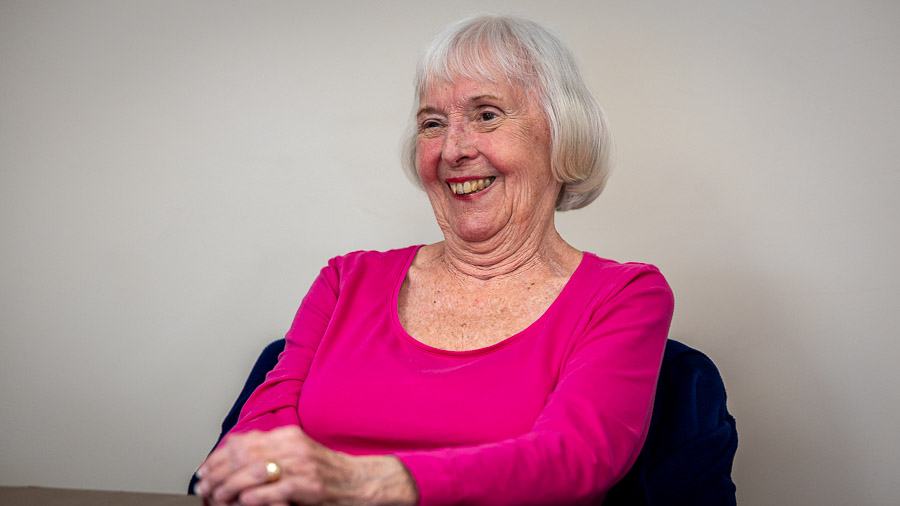
Marilyn Salter told her fellow volunteer she had a good personality for that kind of work. Settles said she “learned a lot of not-nice words.”
With a smile and a hot pink shirt, Salter said “they can’t get rid of me,” after spending 22 years volunteering managing the department’s records. She was proud to say she’ll be 89 in February. When told she was spry for her age, she said that’s due to the volunteer work. She got started because her husband’s doctor prescribed community service.
“His doctor said, ‘The best thing for you to do is to find something to do, volunteering in your community.’ … I think that’s important to know, your doctor says it’s good to give back. It’s a two-way street for me. You give something out, you get something back, you’re helping, but it comes back to you. It’s good to give back to your community. And don’t wait until you get too old,” she said.
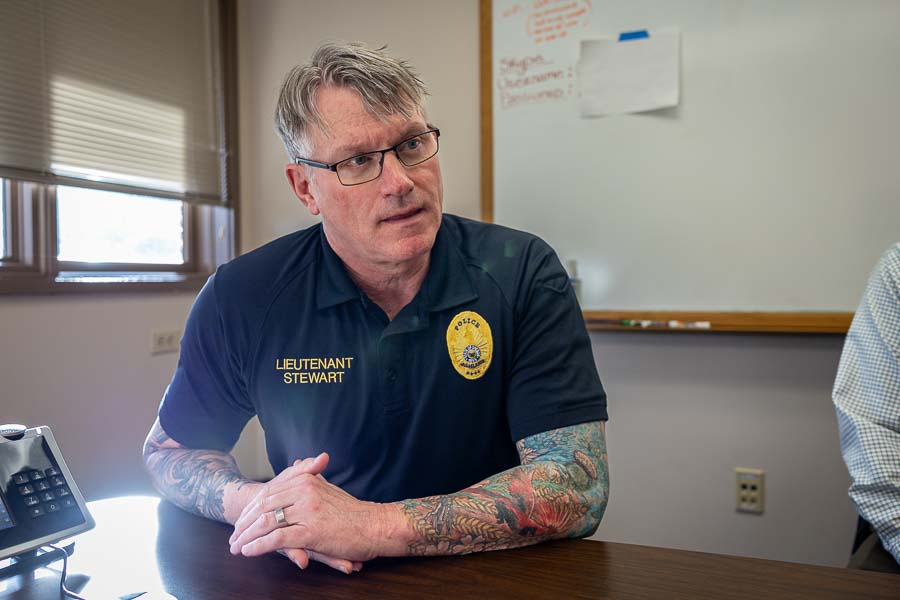
Bielec reflected on his unique perspective from donating time as a courier, ferrying evidence, bodycam footage or legal documents between the various police departments and the county district attorney’s office in Medford. Over the years he met many of those who serve in the Southern Oregon justice system.
“When these people talk about where they came from and what they’re doing, you can see they’re really dedicated to community service and it’s extraordinary,” he said.
Stewart is performing the role of volunteer coordinator for the program, in the absence of a volunteer to fulfill that role, can be reached by phone 541-482-5211 or email at [email protected].
Email Ashland.news reporter Morgan Rothborne at [email protected].
